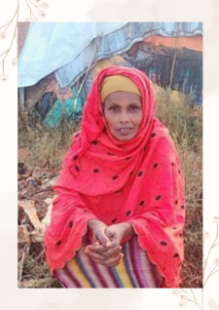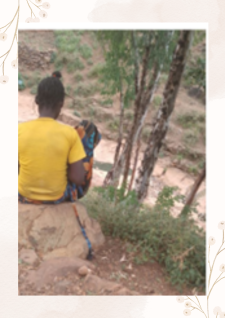- Success stories
- 2mins read
- 53 Views
In the heart of the Somali region, Guradamole Woreda, a small village nestled among rolling hills and vast fields, lived an active and vibrant eight-year-old girl named Nesibo Abdi Farah. Like many children her age, Nesibo spent her days helping her family by herding goats in the fields. Her laughter often echoed through the valleys, a testament to her joyful spirit.
One Friday in May, Nesibo set out with the goats, expecting another ordinary day. The sun was high, casting a warm glow over the landscape. As she watched the goats graze, a familiar young man from the village approached her. At first, Nesibo thought nothing of it; she knew him and felt no reason to be alarmed. However, the day took a dark turn when he realized they were alone.
With a sudden and terrifying aggression, he attacked her. Nesibo, in her simple dress, was caught off guard and froze in fear. The pain and confusion overwhelmed her as she screamed, hoping someone would hear. After what felt like an eternity, the young man fled, leaving Nesibo in shock and pain.
Trembling, Nesibo ran to her father, Abdi, and recounted the horrific incident. Abdi’s anger was palpable, and he wanted to take immediate action by involving the police. However, the village elders and the perpetrator’s family urged him to resolve the matter traditionally, offering camels as compensation. Despite their pleas, Abdi was not satisfied with this resolution.
The incident soon reached the ears of a PAPDA GBV outreach worker during a peer-to-peer session. Recognizing the severity of the situation, the outreach worker referred Nesibo to medical services and the police. Nesibo was taken to Goba General Hospital for further treatment, with financial support from PAPDA. The medical report confirmed that while there was no penetration, the assault had severely affected her urinary tract.
The Guradhamole Woreda police filed a prosecution, and the case was brought before the Guradhamole Woreda First Instance Court. Based on the evidence, the court sentenced the perpetrator to seven years of rigorous imprisonment.
With regular psychological support and medical follow-ups, Nesibo gradually regained her stability and health. Her resilience shone through as she healed from the trauma. Despite the ordeal, Nesibo’s spirit remained unbroken. She continued to dream of becoming a teacher, determined to turn her pain into a source of strength and inspiration for others.
Nesibo’s story is one of courage and resilience, a testament to the strength of the human spirit in the face of adversity.




